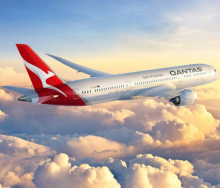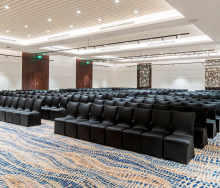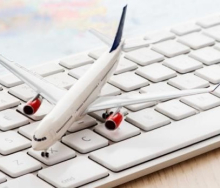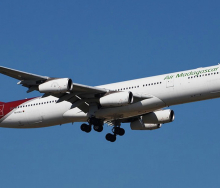SINCE the US and UK imposed
a ban on electronic devices
on board flights from certain
locations, other countries are
considering adopting the policy.
“We need to plan for a possible
future where we are likely to see
fewer personal belongings in
the cabin and more in the hold,”
Bob Judson, a director in the risk
advisory practice at Deloitte in
London, told Travel Weekly. This, he
says, is because the ban on devices
bigger than smartphones could
expand to other destinations.
He compared the situation to the
liquids ban. In 2006, the US and UK
were the first to prohibit the carriage
of liquids, aerosols and gels (LAGs)
of more than 100ml on board after
a supposed terror plot to detonate
a bomb on transatlantic flights was
uncovered. The rule was supposed
to be a temporary measure but
within weeks it was adopted by the
rest of the world and continues to
be applied to this day.
Already, New Zealand Prime
Minister, Bill English, said his
country’s Civil Aviation Authority was
assessing evidence to determine
whether it should consider
restrictions on electronic devices
and Canada’s transport authorities
recently held meetings with
international counterparts to weigh
in on the matter.
However, Michael Kloth, head
of communications of France’s
International Transport Forum said
the issue had not been examined
in any detail at the time TNW asked
for comment. Spokesperson for
Germany’s Federal Ministry of the
Interior, Lisa Hager, would only say
that the adequacy of air security
measures was constantly being
reviewed. She added that the
German security authorities were
in close contact with their US and
British colleagues.
According to a source from the EU
Commission, the 28 EU member
states recently met to discuss the
restrictions but that no decision
had been taken to impose similar
measures. The source said they
concluded that the intelligence and
aviation communities needed to
remain vigilant and ready to react,
but added: “the Commission has
no information of imminent security
risks involving laptops or similar
devices.”
For now, the ban only affects a
small percentage of flights (around
350 scheduled flights a week –
2,7% of total international flights
– in the US; and 393 a week – 2,7%
of international flights – to the UK),
so the possibility of it spreading is
unclear.
But Iata dg and ceo, Alexandre
de Juniac, said industry experience
and know-how needed to be
incorporated into new regulations
and standards. “We have a
common interest in safe and
secure flight. Yet the US and UK
announced that large electronic
devices would be banned from
passenger cabins on some flights
from the Middle East and North
Africa. There was no consultation
with airlines and the measure
challenged public confidence with
inconsistencies, while the safety
concerns over concentrations of
lithium batteries in the aircraft
hold have not yet been adequately
considered or addressed.” He
added that, in future, governments
needed to share information,
consult with industry and support
the International Civil Aviation
Organisation as it developed a
global aviation security plan
Electronics ban may spread
02 Aug 2017 - by Chana Boucher
Comments | 0













